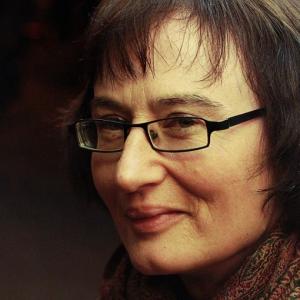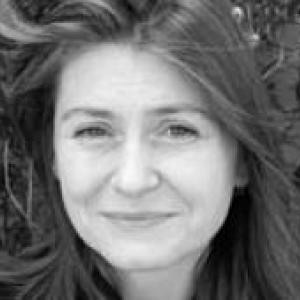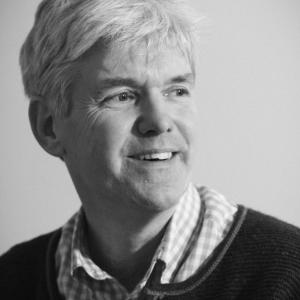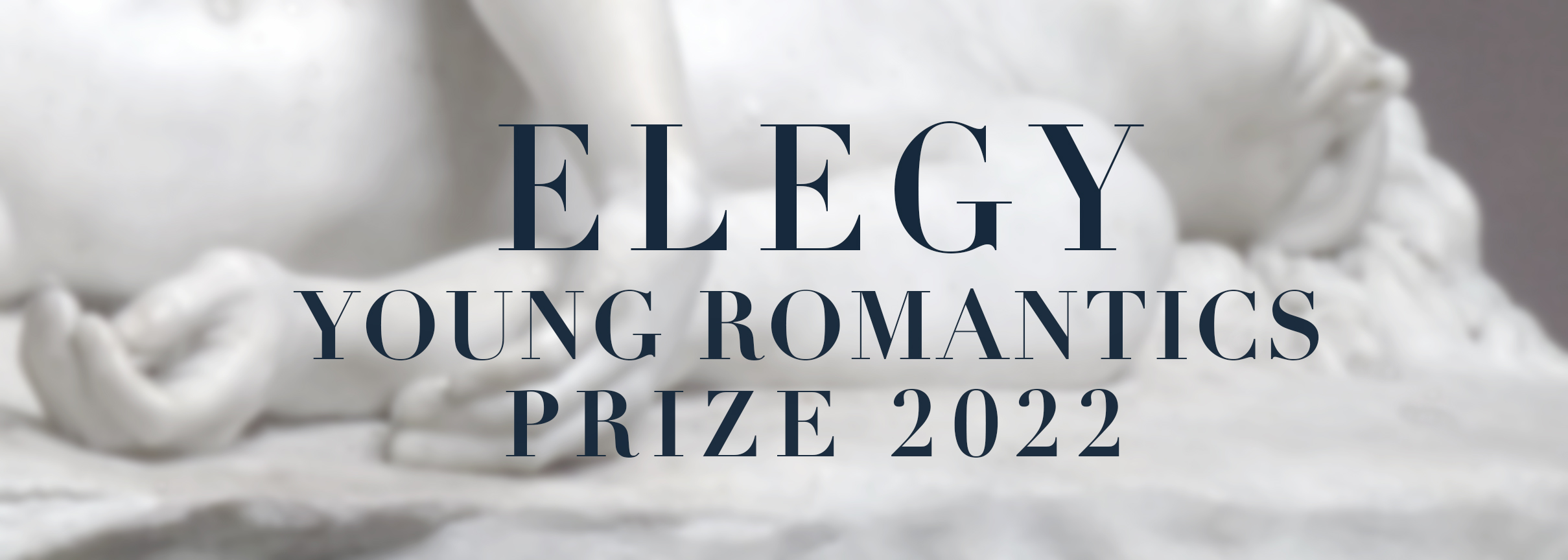Fiona Sampson announces the winners of 2022’s Keats-Shelley and Young Romantics Prizes. Read the winning poems and essays by scrolling down to Shortlist.
Young Romantics Prize 2022
The Young Romantics Writing Prize was inaugurated in 2015 to encourage poets and essayists aged 16-18 to respond to the work of the Romantics. The first Young Romantic Judge was the former Poet Laureate Dame Carol Ann Duffy, followed by Professor Richard Holmes, Liz Lochhead, and Simon Barnes. 2022’s Prize Judge is Fiona Sampson.
Young Romantics Prize 2022
Prize Winners
Poetry Prize Winner
Sophia Liu, Elegy to the Motherland
Poetry Prize Highly Commended
Gemma Rice, Elegy for Hedgehog
Judge's Comments
Winning Poem: Sophia Liu, Ode to the Motherland
‘An immensely powerful poem which uses intense musicality as rhetoric, and sustains a sense of movement, both in the most Shelleyian of ways. This Ode harnesses exceptional technique and accomplishment to a feelingful, and socio-politically significant, topic – this too a Romantic approach.’
Runner-up: Gemma Rice,Elegy for Hedgehog
‘A wryly perceptive reflection on mutability, this poem moves part mere description to imaginative reconstruction.’
Fiona Sampson
Essay Prize Winner
Chloe Wilcox, How Shelley’s ‘Mask of Anarchy’ lives on in political thought and action
Essay Prize Highly Commended
Gunisha Aggarwal, Que sais-je? The Appeal of the Second-Generation Romantic Poets .
Judge's Comments
Winning Essay: Chloe Wilcox, ‘How Shelley’s ‘Mask of Anarchy’ lives on in political thought and action’
‘True to its title, this brilliant piece of work seeks out traces of Shelley in contemporary culture. The originality of its approach, its original research, and the sophistication of the writing make this exceptionally exciting.’
Runner up: Gunisha Aggarwal, ‘Que sais-je? The Appeal of the Second-Generation Romantic Poets’
‘This is an essay which has the enthusiasm, range and depth of an original thinker: perhaps a developing literary writer. It is well-argued, and if there are occasional slight smudges of infelicity in the ‘scholarly diction’, still, this is the mind of someone I’d delight to have been taught by, or to hear speak in public or broadcast. The kind of communicator Romanticism needs!’
Fiona Sampson
Shortlists
Read all the shortlisted Poems and Essays below. The poems were chosen by Professor Deryn Rees-Jones and Will Kemp for the Poetry Prize. Professor Sharon Ruston and Professor Simon Bainbridge selected the essays.
Poets were asked to write on 2022’s Prize theme of ‘ELEGY’. This commemorates two bicentenaries: the death of Percy Bysshe Shelley on 8th June 1822 and the composition of Adonais, Shelley’s elegy for John Keats, a year earlier in 1821.
Essayists were asked two questions:
- How does the poetry of Keats, Shelley and the Romantics live on in 2022?
- Is the poetry of Shelley, Keats and the Romantics best enjoyed by young readers?
You can also visit our Google Earth Elegy World Map which we will continue to update and expand through the autumn.
Finally, a huge thank you to the sponsors of 2022’s Young Romantics Prize:
British Italian Society
D’Oyly Carte Charitable Trust
Golsoncott Foundation
John S. Cohen Foundation
Michael Marks Charitable Trust
PF Charitable Trust
Tedworth Charitable Trust
Poetry Shortlist
Essay Shortlist
Judges
-
Chair of Judges

Fiona Sampson
Fiona Sampson is a writer and poet. Published in thirty-eight languages, she is a Fellow of the Royal Society of Literature and of the Wordsworth Trust, has published twenty-nine books and has received an MBE for Services to Literature.
She’s served on the Council of the Royal Society of Literature and is Trustee of the Royal Literary Fund; other honours include the Newdigate Prize, Cholmondeley Prize, and various awards from the Arts Councils of England and of Wales, Society of Authors, Poetry Book Society and AHRC, and Book of the Year selections. She recently received the 2019 Naim Frashëri Laureateship, the 2020 European Lyric Atlas Prize, and, for Come Down, Wales Poetry Book of the Year 2021.
Sampson’s studies of writing process include Beyond the Lyric and Lyric Cousins: Poetry and Musical Form. She edited Percy Bysshe Shelley (Faber). A critic, librettist and literary translator, she was editor of Poetry Review 2005-12 and has served internationally on the boards of publishing houses and literary NGOs, and on literary juries.
Sampson’s writing about place including Limestone Country, a Guardian Book of the Year 2017. Her internationally acclaimed In Search of Mary Shelley (2018) was finalist for the Biographers’ Club first biography prize, and Two-Way Mirror: The life of Elizabeth Barrett Browning (2021), a New York Times Editors’ Choice and Washington Post and Prospect Book of the Year 2021, longlisted for the 2022 PEN Jacqueline Bograd Weld Award for Biography.
-
Poetry Judges

Professor Deryn Rees-Jones
Deryn Rees-Jones is Professor of Poetry at the University of Liverpool. She won an Eric Gregory award in 1993 and The Memory Tray (Seren, 1995) was shortlisted for the Forward Prize for Best First Collection. Her other works are Signs Round a Dead Body (Seren, 1998), Quiver (Seren, 2004), and a groundbreaking critical study of twentieth-century women’s poetry, Consorting with Angels (Bloodaxe, 2005), which was published alongside her accompanying anthology Modern Women Poets (Bloodaxe, 2005). Deryn’s selected poems, What It’s Like to Be Alive, was published in 2016 and is a Poetry Book Society Special Commendation.
In 2004 Deryn was named as one of Mslexia’s ‘top ten’ women poets of the decade, as well as being chosen as one of the Poetry Book Society’s Next Generation poets.
Deryn has considerable experience as a poetry judge, including the National Poetry Competition, the T.S. Eliot Prize, the Costa Prize (Poetry) and every two years chairs the judging panel for the English Association’s Michael Murphy Poetry Prize for a best first collection of poetry.
Deryn’s most recent book is Paula Rego: The Art of Story, the first full-length survey of one of the most distinctive and important modern artists. Her most recent books of poems are Erato (Seren 2019) shortlisted for the T S Eliot Prize and Welsh Book of the Year, and Hôtel Amour (Seren 2025). She is the editor of the award-winning Pavilion Poetry series for Liverpool University Press, and a Fellow of the Royal Society of Literature.
-

Will Kemp
Will Kemp is a writer of poems, short stories and novels. He is Assistant Editor at Valley Press and has taught Creative Writing at York University.
He has won the Keats-Shelley Prize, Cinnamon Short Story Competition, Debut Collection Award, Coast to Coast Prize, Cinnamon Pamphlet Competition and Envoi International. He has also been well-placed in many others.
His publications include four collections of poems and short stories, two award-winning pamphlets and 500 pieces in Aesthetica, The Guardian, Iota, Magma, The North, Orbis, Poetry News, Rialto, The Times and others.
His debut short story collection, Surviving Larkin, was published recently by Valley Press. His fourth full poetry collection, In Another Life, will also be published shortly by Valley Press.
He regards a commendation in the Keats-Shelley Prize 2006 as the turning point in his writing career since it spurred him on during a time of self-doubt.
-
Essay Judges

Professor Sharon Ruston
Professor Sharon Ruston is a long-standing judge of essay prizes. She is Chair of Romanticism in the English Literature and Creative Writing department at the University of Lancaster.
Her research specialism concerns the relations between the literature, science and medicine of the Romantic period, 1780-1820. She has published The Science of Life and Death in Frankenstein (2021), Creating Romanticism (2013), Romanticism: An Introduction (2010), and Shelley and Vitality (2005). She co-edited The Collected Letters of Sir Humphry Davy for Oxford University Press (2020) and led the AHRC-funded project to transcribe all of the Davy’s notebooks: wp.lancs.ac.uk/davynotebooks/
Read a Q&A with Sharon and Professor Tim Fulford at the BARS Blog.
Visit Sharon’s profile page at the University of Lancaster here.
-

Professor Simon Bainbridge
Professor Simon Bainbridge is a long-standing judge of the essay prizes. He teaches and writes at the University of Lancaster.
His main research interest is in the relationship between the writing of the Romantic period and its historical context. He is the author of Napoleon and English Romanticism (Cambridge University Press, 1995), British Poetry and the Revolutionary and Napoleonic Wars (Oxford University Press, 2003) and Mountaineering and British Romanticism: The Literary Cultures of Climbing, 1770 – 1836 (Oxford University Press, 2020) and the editor of Romanticism: A Sourcebook. He has published in journals such as Romanticism, Romanticism on the Net and The Byron Journal and has written essays and entries for An Oxford Companion to The Romantic Age: British Culture 1776-1832, Romanticism: An Oxford Guide, The Blackwell Companion to European Romanticism, and The Oxford Handbook of British Romanticism. He is a Trustee of the Wordsworth Trust and the Wordsworth Conference Foundation.
Visit Simon’s profile page at the University of Lancaster here.
